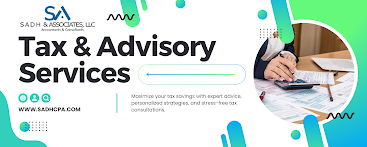Retirement Tax Advisor Near San Antonio: Your Guide to Financial Peace with SADH CPA

Introduction Retirement is an exciting chapter in life, but it comes with its own set of challenges—especially when it comes to taxes. This is where a skilled retirement tax advisor can make all the difference. If you're near San Antonio, SADH CPA is your go-to partner for navigating the complexities of retirement taxes with ease and confidence. Understanding Retirement Tax Planning What Is Retirement Tax Planning? Retirement tax planning is all about strategically managing your income, investments, and expenses to minimize taxes during retirement. It involves understanding tax laws, maximizing deductions, and ensuring that your hard-earned savings last as long as possible. Why Is Retirement Tax Planning Important? Without proper planning, retirees often face unexpected tax bills that can disrupt their financial stability. By taking proactive steps, you can avoid unnecessary taxes, preserve your wealth, and achieve peace of mind. Common Tax Issues in Retirement ...




